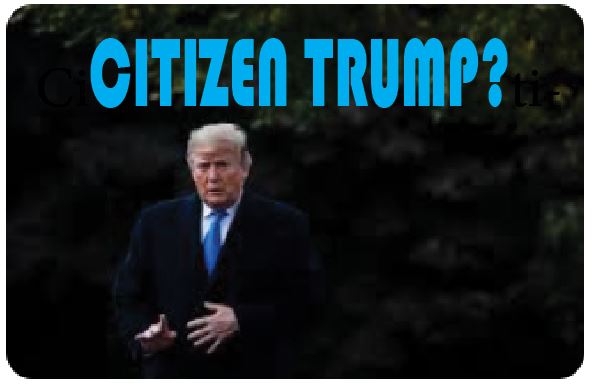
THE SCOTUS “PRESIDENTIAL” CASE
IS THE PRESIDENT IMMUNE FROM CRIMINAL LIABILITY?
This is a significant time in the history of the United States because of the issues being addressed by the courts relative to the responsibility of a President of The United States for any actions taken during his or her term in office. This criminal case involves the alleged interference by former President Trump in the election results of 2020. He argues he had absolute immunity for any actions he took on January 6, 2021 relating to those election results because they were “official acts” while in office, therefore the case should be dismissed.
SCOTUS granted review of the case stating:
TRUMP, DONALD J. V. UNITED STATES
(23A745)
The application for a stay presented to The Chief Justice is referred by him to the Court. The Special Counsel’s request to treat the stay application as a petition for a writ of certiorari is granted, and that petition is granted limited to the following question: Whether and if so to what extent does a former President enjoy presidential immunity from criminal prosecution for conduct alleged to involve official acts during his tenure in office. Without expressing a view on the merits, this Court directs the Court of Appeals to continue withholding issuance of the mandate until the sending down of the judgment of this Court.
The specific issue before SCOTUS will be:
Whether and if so to what extent does a former President enjoy presidential immunity from criminal prosecution for conduct alleged to involve officials acts during his tenure in office.
What is different in this case is that SCOTUS directs that the Court of Appeals “continue withholding issuance of the mandate until the sending down of the judgment of this Court.” In other words, when a court issues a decision a mandate usually issues that the decision be carried out and enforced if necessary. Here, SCOTUS is basically freezing the entire process of the lower courts until it hears oral argument and issues a decision.
Wouldn’t it have been nice for SCOTUS to have done that in the free speech case (Feb 4 post) accusing the social-media platforms of acting as an agent of the government in affecting citizens’ rights to free-speech before the argument and decision in that case?
It was announced SCOTUS will hear the case during the week of April 22nd. To listen to the argument go to supremecourt.gov/oral_arguments/live.aspx. The argument should take place at 10 a.m. EST unless opinions are being read of other cases decided in which case it will heard shortly after that time.
In a 57 page opinion the Circuit Court concluded:
We have balanced former President Trump’s asserted interests in executive immunity against the vital public interests that favor allowing this prosecution to proceed. We conclude that “[c]oncerns of public policy, especially as illuminated by our history and the structure of our government” compel the rejection of his claim of immunity in this case. See Fitzgerald, 457 U.S. at 747–48. We also have considered his contention that he is entitled to categorical immunity from criminal liability for any assertedly “official” action that he took as President — a contention that is unsupported by precedent, history or the text and structure of the Constitution. Finally, we are unpersuaded by his argument that this prosecution is barred by “double jeopardy principles.” ….
…
For the purpose of this criminal case, former President Trump has become citizen Trump, with all of the defenses of any other criminal defendant. But any executive immunity that may have protected him while he served as President no longer protects him against this prosecution.
The decision of the Court will have a significant impact on the office of the President of The United States. Immunity protects against liability for actions taken, for example, by prosecutors, judges, and others. Police officers used to have absolute immunity but now have only partial immunity for their actions so what they do can now be judged by a judge or jury determining whether the actions were “reasonable” under the circumstances. It has caused them to hesitate and have to consider how they may be judged later which in many cases causes them not to act. Is it better to have law enforcement officers delay in carrying out their duties we have assigned to them through our legislators and written into law? Do we want the same for prosecutors (who will then possibly make the decision not to charge or proceed with charges) or judges (who will decide the case other than in the manner in which it should be decided). Where does it stop?
Hopefully SCOTUS will write an opinion that makes sense and will be accepted by all citizens who want government to work for them.
Don
Author of “The Tyrannical Rule Of The United States Supreme Court; How The Court Has Violated The Constitution”, available at Ingram Spark and as an eBook at Barnes and Noble.
© 2023 Donald Brockett Website: donaldbrockettauthor.com
Contact: donsbooks@proton.me
#SCOTUS #Tyranny #concernedcitizen
#SCOTUS #Tyranny #concernedcitizen Facebook CAST-Citizens Against Supreme Court Tyranny
To comment on the newsletter, send an email to donbsbooks@gmail.com
If you liked this post from The CAST Constitution/SCOTUS Newsletter, why not share it?